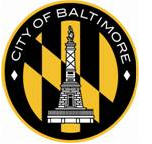Mayor Scott, Councilman Torrence Announce Legislation to Enhance City's Re-Entry Efforts
Monday Aug 21st, 2023

FOR IMMEDIATE RELEASE
BALTIMORE, MD (Monday, August 21, 2023) - Today, Mayor Brandon M. Scott, Councilman James Torrence (District 7), City Council President Nick Mosby, and Mayor’s Office of Neighborhood Safety and Engagement Interim Executive Director Stefanie Mavronis announced legislation to be introduced to the City Council by Councilman Torrence that would establish an Office of Returning Citizens. Housed within the Mayor’s Office of Neighborhood Safety and Engagement (MONSE), the Office of Returning Citizens would coordinate services, develop support networks, and advocate for Baltimoreans re-entering society.
The proposed Office of Returning Citizens will oversee Baltimore’s first-ever Re-Entry Action Council (RAC) and institutionalize MONSE’s current re-entry work to improve the City’s capacity to serve individuals returning from incarceration.
“Historically, the criminal justice system has failed our residents. We have an opportunity to break the vicious cycle of poverty, crime, and mass incarceration by ensuring our incarcerated residents have the services and supports they need to successfully re-enter society,” said Mayor Brandon M. Scott. “Through the Mayor’s Office of Neighborhood Safety and Engagement we have begun laying the foundation for this work and implementing programs, like Returning Citizens Behind the Wall, designed to reduce recidivism and improve public safety. This legislation will help enhance and codify these efforts into a dedicated office within MONSE to build on the progress we have made and reaffirm our shared commitment to supporting Baltimore’s returning citizens.”
The RAC will serve to advise the Scott Administration and City Council on issues relating to returning citizens and work collaboratively with the Office of Returning Citizens to implement evidence-based practices to reduce recidivism rates among formerly incarcerated Baltimoreans, including but not limited to: strengths-based case management; access to effective workforce development training and programming; work readiness; addressing barriers to housing; family reunification; and connectivity to holistic healthcare services including mental and behavioral health, substance use disorders, and co-occurring disorders.
“This office’s work is extremely personal to me as both my parents struggled with the criminal justice system and faced many barriers as returning citizens,” said Councilman James Torrence. “My mother, Pamela Massenburg, had to sleep on my grandmother's couch because she was unable to obtain housing due to her criminal record. She was limited in jobs as educational institutions would not accept her or often referred her to job training that did not have family sustaining wages. This legislation solidifies an office that addresses the critical needs of individuals, which includes housing, employment, family unification, mental and physical health treatment and more. I want to thank all the other city agencies and our community partners for collaborating on this critical re-entry work.”
“This is an important step to ensuring access and pathways to success for our most vulnerable residents, their families, and collectively our city,” said City Council President Nick Mosby. “Providing the proper attention and much needed tools and resources to returning citizens is a vital part of rebuilding our city by rebuilding its citizens. The council is committed to working with the administration to better serve all Baltimoreans and addressing the challenges of our returning citizens.
“Baltimore hasn’t had a consistent, dedicated home for re-entry services within City government. MONSE and this Administration, alongside Councilman Torrence and our partners, are committed supporting residents re-entering society,” said MONSE Interim Executive Director Stefanie Mavronis. “This legislation will allow us to institutionalize this work to benefit Baltimoreans today and in the future as we scale up our existing programming as part of the Securing Year of the Comprehensive Violence Prevention Plan.”
Approximately 2,000 Baltimoreans return from prison each year. According to the Justice Policy Institute, Baltimoreans are disproportionately impacted by mass incarceration – representing 40 percent of the state’s prison population despite being home to just 9 percent of Maryland’s overall population.
Today’s announcement reaffirms Mayor Scott’s commitment to intentionally support residents returning home from prison in order to reduce recidivism rates across the city through dedicated re-entry programming, outlined in the Comprehensive Violence Prevention Plan.
MONSE is working closely with the Maryland Department of Public Safety and Correctional Services, the Mayor’s Office of Employment Development, the Baltimore City Department of Recreation and Parks, the Mayor’s Office of Homeless Services, the Baltimore City Department of Housing and Community Development, other City agencies, and various community based re-entry partners to implement work that leverages the influence of the Mayor’s Office and relationships with community-based providers to open new avenues of coordinated support.